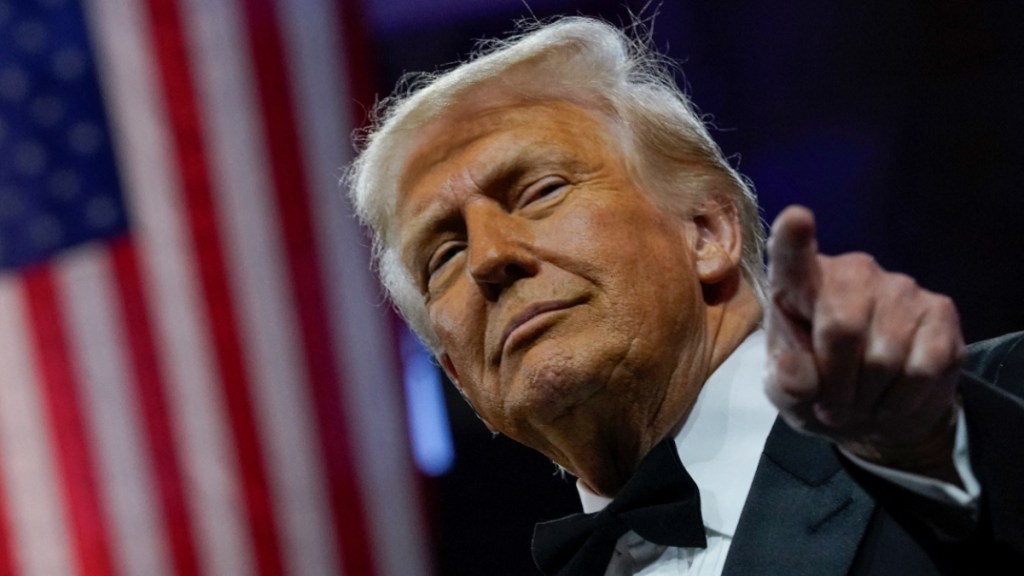The Supreme Court of the United States has allowed President Donald Trump to continue using an archaic 1978 wartime-era law to deport alleged gang members to Venezuela, but it is subject to limitations. The ruling comes after a Washington DC-based judge temporarily blocked the deportations last month, citing the need for greater legal scrutiny of the law’s application.
In a 5-4 ruling, the court said that the legal challenges related to the Alien Enemies Act must take place in Texas, where the migrants are being held, and not in Washington. “The detainees are confined in Texas, so venue is improper in the District of Columbia,” the apex court noted. However, the justices did not address whether the Trump administration had misused the Alien Enemies Act.
The court noted that detainees should be notified well in advance that they are “subject to removal under the Act”, allowing them to seek habeas relief before deportation.
‘Great day for justice in America’
“The Supreme Court has upheld the Rule of Law in our Nation by allowing a President, whoever that may be, to be able to secure our Borders, and protect our families and our Country, itself. A great day for justice in America,” Trump wrote on Truth Social.
ACLU also saw the ruling as a “huge victory”. “We are disappointed that we will need to start the court process over again in a different venue, but the critical point is that the Supreme Court said individuals must be given due process to challenge their removal under the Alien Enemies Act,” lead ACLU attorney Lee Gelernt said in a statement to US media.
Venezuelan man deported to El Salvador’s infamous prision
On March 15, Trump invoked the Alien Enemies Act to deport alleged members of the Venezuelan Tren de Aragua gang, claiming that they were “conducting irregular warfare” against America. The gang, which he designated a foreign terrorist organisation, is allegedly involved in sex trafficking, drug smuggling and murders both at home and on US land.
Following this, several men, who were linked to the group, were detained by the US immigration authorities before being deported to El Salvador’s infamous Terrorism Confinement Center (CECOT). The American Civil Liberties Union (ACLU) and the organisation Democracy Forward then filed a lawsuit on behalf of the detainees, arguing that the act applies only during declared wars or invasions.
US authorities deported hundreds of Venezuelan men, transferring 238 of them to El Salvador, where they were handed over to be detained in the country’s mega prison.
Family members of many of the deported Venezuelan migrants deny the alleged gang ties. A US Immigration and Customs Enforcement (ICE) official also acknowledged in court documents that many don’t have US criminal records. Lawyers for one of the deportees, a Venezuelan professional soccer player and youth coach, said US officials had wrongly labelled him a gang member based on a tattoo of a crown meant to honor his favorite team, Real Madrid.
As part of this crackdown, a legal US citizen was also deported because of an “administrative error”, as per a court filing on Monday, but US courts lack jurisdiction to order his return. Kilmar Abrego Garcia came to the US from El Salvador in 2011 and filed for asylum. His asylum request was denied, however, he was granted a 2019 court order preventing his deportation. He was taken into custody by authorities due to his alleged identity as a gang leader and suspected involvement in human trafficking.
The act, last used in World War II to detain Japanese, Italian and German nationals, gives powers to the US president to detain or deport natives or citizens of an “enemy” nation without following the usual processes. It was passed when the US feared a war with France.
After the US judge James Boasberg, an appointee of the Democratic president Barack Obama, had temporarily blocked the deportations, Trump called for his impeachment by Congress. It drew a rebuke from the US Chief Justice John Roberts. Trump later lashed out, calling Boasberg a “radical left lunatic” and a “troublemaker and agitator”.

